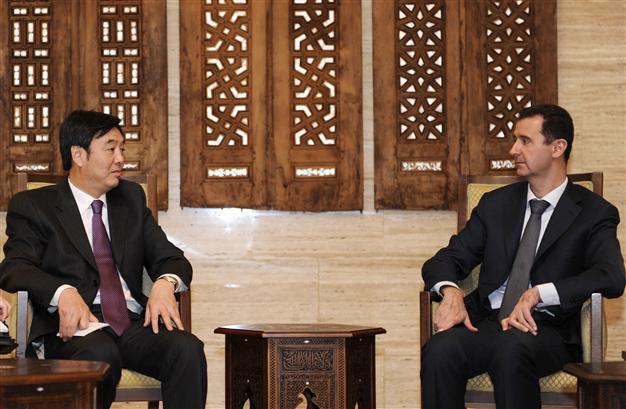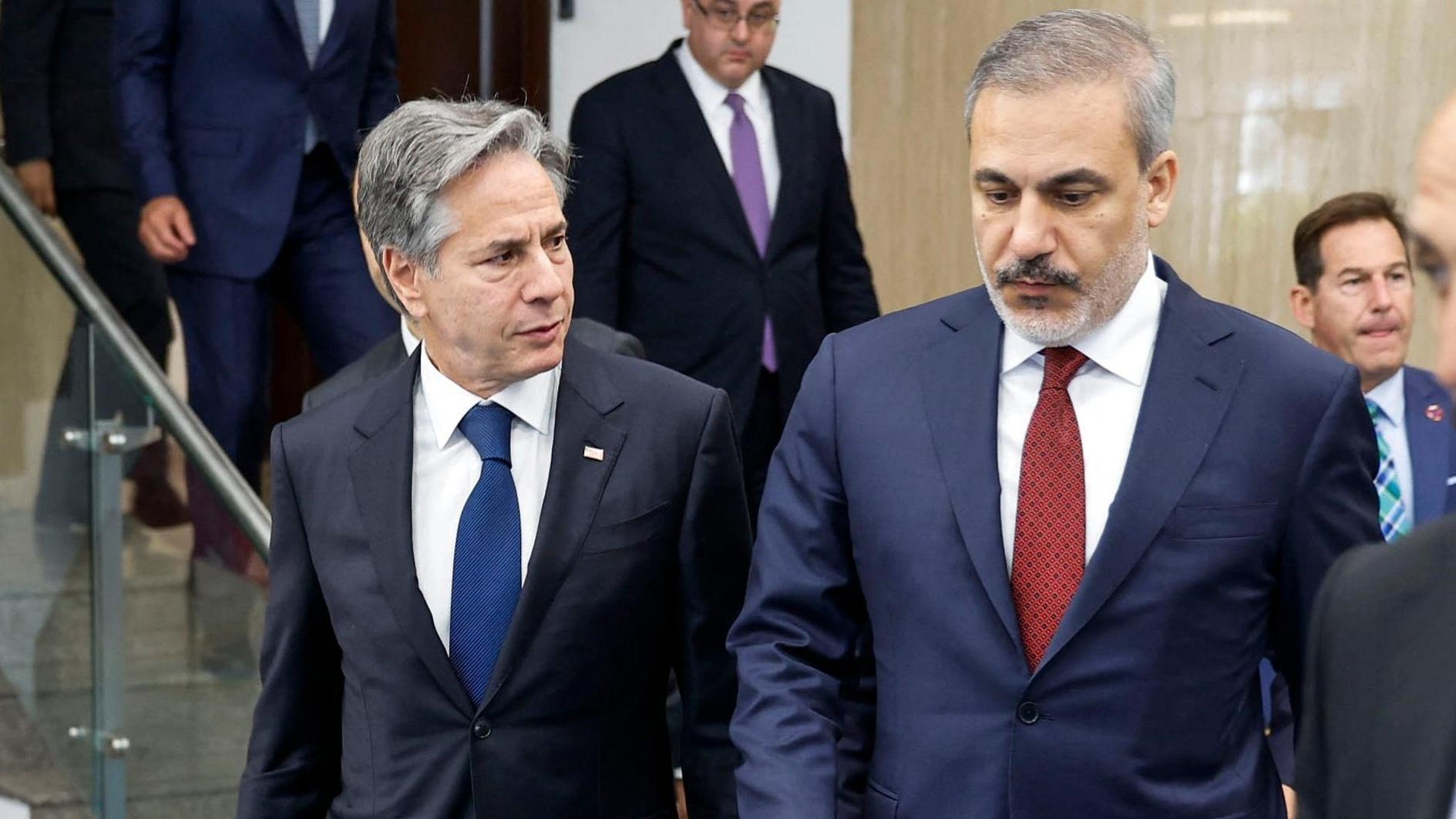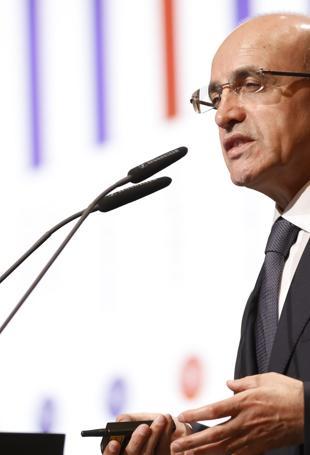China to send envoy in bid to ease Syria crisis
BEIJING - Reuters

In this photo released by China's Xinhua News Agency, Syrian President Bashar Assad, right, meets with Chinese Vice Foreign Minister Zhai Jun, a special envoy of the Chinese government, in Damascus, Syria, Saturday, Feb. 18, 2012. AP Photo
China said today it will send an envoy to Syria in a fresh bid to help staunch violence there that has divided Beijing from Western and Arab powers demanding stronger action to rein in the forces of President Bashar al-Assad.The Chinese Foreign Ministry said Li Huaxin, the country's former ambassador to Syria, will visit there for two days from Tuesday, promoting a six-point plan that Beijing issued on the weekend as the basis of a solution to the violence.
While announcing ambassador Li's visit, the foreign ministry spokesman, Liu Weimin, sounded a somber warning about the fighting that has sent refugees spilling into Lebanon.
"Currently the situation in Syria continues to heat up and become more serious. The conflicts between various parties in Syria remain stark, and the international community has differing views on how to ease the Syrian crisis as quickly as possible," Liu told a daily news briefing in Beijing.
"Although conditions are extremely complicated, and the situation remains tense, China still maintains that a political solution offers the fundamental escape from the Syrian crisis."
The envoy's trip appears to be China's latest initiative to counter accusations from Western and Arab governments that it and Russia abetted expanding violence by Assad's forces by vetoing United Nation's two resolutions aimed at pressuring him.
"China believes that based on recent developments and changes in Syria, it is necessary for us to further explain our policies and proposals," the spokesman Liu said of Li's trip.
The United Nations says Syrian security forces have killed more than 7,500 civilians since the revolt against the Assad family's four-decade rule began in March last year.
On the weekend, Beijing laid out its stance on Syria in a six-point statement that warned other powers not to use humanitarian aid for Syria to "interfere" there, and urged Assad's government and other warring sides to "immediately, fully and unconditionally" stop fighting.
China has also long been reluctant to back international intervention in domestic turmoil. That wariness was reignited last year when NATO forces cited a U.N. resolution to protect civilians in warring Libya as authority for an air bombing campaign that was crucial to eventually ousting Muammar Gaddafi.
China abstained that from Libya resolution, but later suggested NATO powers exceeded the U.N. mandate through their expanding bombing campaign.
China has emphasized it does not want to open the way to similar action against the Syrian government through any international humanitarian action.
"China does not approve of armed interference or pushing for 'regime change' in Syria, and believes that use or threat of sanctions does not help to resolve this issue appropriately," the Chinese statement on the weekend said.
The envoy Li visited the Middle East last month to discuss the Syrian crisis, and there is no reason that this trip will be any more fruitful. But the spokesman Liu said the crisis could be resolved only through political negotiations.
"As long as there is one ray of hope, China will make a hundredfold efforts," he said.
















